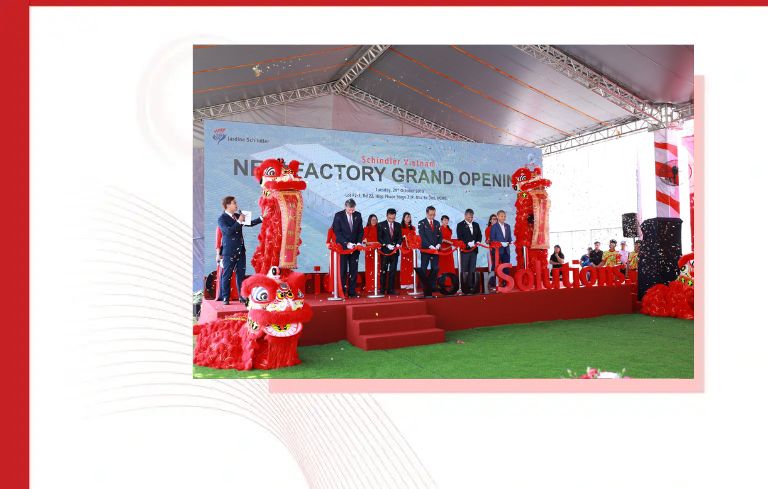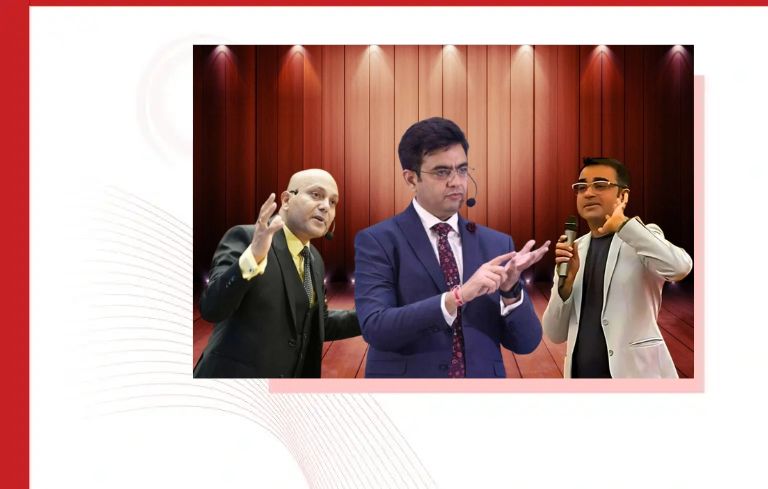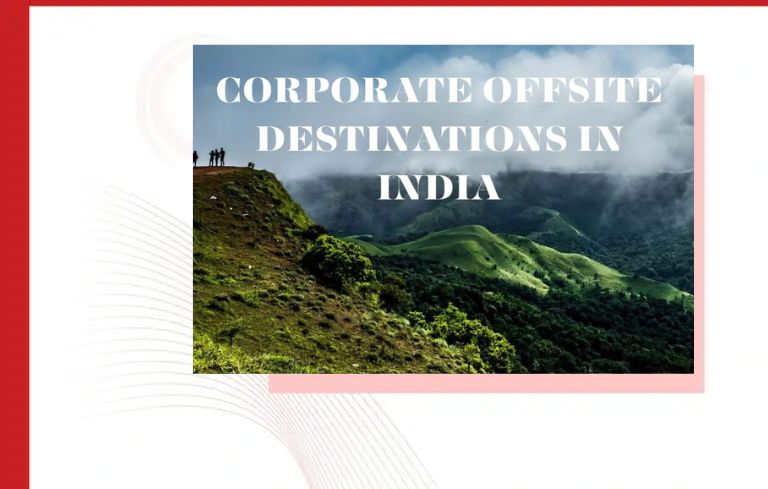Conferences and corporate events serve as pivotal platforms for fostering professional growth, networking, and knowledge exchange within organizations. Whether aimed at employees, stakeholders, or industry partners, a well-orchestrated conference and corporate event can leave a lasting impact. To ensure success, it’s crucial to carefully curate the elements that make up the conference experience. Here’s a comprehensive guide to the essential elements every conference and corporate event should include:
1. Clear Objectives:
Define the purpose of the conference from the outset. Whether it’s launching a new product, fostering team collaboration, or sharing industry insights, clarity of objectives will guide all subsequent planning decisions.
2. Engaging Content:
Develop a diverse and compelling agenda that caters to the interests and needs of attendees. Include keynote speeches, panel discussions, workshops, and interactive sessions to keep participants engaged and inspired.
3. Expert Speakers:
Invite renowned industry experts, thought leaders, and influencers to share their insights and expertise. High-quality speakers add credibility to the conference and provide valuable learning opportunities for attendees.
4. Networking Opportunities:
Facilitate meaningful connections among attendees through structured networking sessions, breakout groups, and social events. Encourage interaction and collaboration to maximize the value of the conference experience.
5. Technology Integration:
Leverage technology to enhance the conference experience. Utilize event management platforms for registration and communication, incorporate live polling and Q&A sessions, and provide digital resources for easy access to information.
6. Sponsorship and Exhibitor Opportunities:
Partner with relevant sponsors and exhibitors to showcase products, services, and innovations relevant to the conference theme. Sponsorship opportunities not only provide financial support but also add value to the attendee experience.
7. Venue Selection:
Choose a venue that aligns with the conference theme and accommodates the anticipated number of attendees comfortably. Consider factors such as location, accessibility, amenities, and audio-visual capabilities to ensure a seamless event experience.
8. Logistics and Operations:
Pay meticulous attention to logistical details such as event staffing, catering, transportation, and on-site support services. Seamless operations are essential for the smooth execution of the conference.
9. Branding and Marketing:
Create a strong visual identity for the conference through branding elements such as logos, signage, and promotional materials. Develop a comprehensive marketing strategy to generate buzz, attract attendees, and maximize participation.
10. Post-Conference Follow-Up:
Extend the impact of the conference beyond the event itself by following up with attendees, sharing presentation materials, and soliciting feedback. Evaluate the success of the conference against predefined metrics and identify areas for improvement.
In conclusion, a successful corporate conference is the result of careful planning, attention to detail, and a commitment to delivering value to attendees. By incorporating these essential elements into the conference design, organizers can create a memorable and impactful experience that fosters learning, collaboration, and professional growth.
Elevate Your Event: Inspiring Themes and Conference and corporate event Setup Ideas

Hosting a conference involves more than just choosing a venue and scheduling speakers. To create a memorable and engaging event, organizers must infuse creativity into every aspect of the conference, from the theme to the setup. Whether you’re planning a corporate gathering, industry summit, or professional development workshop, here are some inspiring themes and setup ideas to help you elevate your event to new heights:
1. Futuristic Technology Showcase:
- Theme: “Innovate Tomorrow, Today”
- Setup Ideas: Incorporate futuristic elements such as holographic displays, interactive touchscreens, and augmented reality experiences. Create a “Tech Playground” where attendees can explore the latest gadgets and innovations. Design sleek, modern spaces with minimalist decor and high-tech amenities.
2. Global Perspectives Symposium:
- Theme: “Bridging Borders, Building Connections”
- Setup Ideas: Celebrate cultural diversity with themed breakout sessions, international cuisine tastings, and live performances showcasing music and dance from around the world. Designate areas for interactive cultural exhibits and networking lounges inspired by different regions.
3. Wellness and Mindfulness Retreat:
- Theme: “Nourish Your Body, Nurture Your Mind”
- Setup Ideas: Create a serene atmosphere with calming colors, natural materials, and soft lighting. Offer wellness activities such as yoga and meditation sessions, healthy cooking demonstrations, and mindfulness workshops. Provide nourishing snacks and hydration stations throughout the venue.
4. Leadership and Empowerment Summit:
- Theme: “Lead with Purpose, Empower with Passion”
- Setup Ideas: Design dynamic spaces with bold colors, motivational quotes, and interactive leadership challenges. Feature keynote speakers who embody leadership excellence and offer actionable insights for personal and professional growth. Foster collaboration through team-building exercises and leadership roundtable discussions.
5. Industry Innovation Expo:
- Theme: “Shaping the Future of [Industry]”
- Setup Ideas: Showcase the latest trends and breakthroughs in the industry with product demos, prototype displays, and technology showcases. Create themed zones highlighting different aspects of the industry, such as sustainability, automation, or digital transformation. Encourage networking and collaboration among exhibitors and attendees.
6. Creativity and Design Symposium:
- Theme: “Inspire, Create, Innovate”
- Setup Ideas: Curate a visually stimulating environment with vibrant colors, artistic installations, and interactive art exhibits. Feature renowned designers, creatives, and innovators who push the boundaries of imagination and innovation. Offer hands-on workshops in areas such as graphic design, photography, and storytelling.
7. Sustainability Summit:
- Theme: “Towards a Greener Future”
- Setup Ideas: Embrace eco-friendly practices with sustainable decor, recycled materials, and energy-efficient lighting. Showcase environmentally conscious products and initiatives through exhibitor booths and educational displays. Host panel discussions and workshops on topics such as renewable energy, waste reduction, and corporate sustainability strategies.
8. Celebrating Diversity and Inclusion:
- Theme: “Unity in Diversity”
- Setup Ideas: Create an inclusive and welcoming environment with diverse representation in speakers, panelists, and content. Incorporate elements of cultural heritage and identity throughout the event, including music, art, and cuisine. Foster dialogue and understanding through interactive sessions on topics such as unconscious bias, allyship, and inclusive leadership.
By selecting a compelling theme and implementing innovative setup ideas, conference organizers can create a unique and immersive experience that resonates with attendees long after the event has concluded. Whether fostering collaboration, inspiring creativity, or advancing industry knowledge, a well-executed conference theme sets the stage for a truly unforgettable event.
Things to care while planning a conference or corporate event

Planning a conference or corporate event requires careful attention to detail and thorough organization to ensure its success. Here are some key things to consider and care for during the planning process:
1.Clearly Define Objectives:
Begin by establishing clear goals and objectives for the event. What do you hope to achieve? Whether it’s networking, education, brand awareness, or something else, having a clear purpose will guide all subsequent planning decisions.
2.Budget Management:
Set a realistic budget and allocate funds wisely to cover all aspects of the event, including venue rental, catering, speakers, marketing, and miscellaneous expenses. Keep track of expenses throughout the planning process to avoid overspending.
3.Selecting the Right Venue:
Choose a venue that aligns with the size, theme, and logistics of your event. Consider factors such as location, capacity, amenities, and accessibility for attendees. Visit potential venues in person to assess their suitability and negotiate favorable terms.
4.Timeline and Schedule:
Create a detailed timeline outlining all pre-event, during-event, and post-event tasks and deadlines. Develop a comprehensive schedule for the day(s) of the event, including session timings, breaks, meals, and networking opportunities.
5.Event Marketing and Promotion:
Develop a strategic marketing plan to promote the event and attract attendees. Utilize various channels, such as social media, email newsletters, press releases, and partnerships, to generate buzz and maximize attendance.
6.Speaker Selection and Content Development:
Curate a lineup of engaging speakers and relevant topics that align with the interests and needs of your target audience. Work closely with speakers to develop compelling presentations and ensure they are well-prepared for the event.
7.Logistics and Operations:
Pay close attention to logistical details such as event registration, badge printing, AV equipment rental, seating arrangements, signage, and on-site support services. Ensure that all operational aspects run smoothly to provide a seamless experience for attendees.
8.Catering and Refreshments:
Select a catering provider that offers high-quality food and beverage options suitable for the event format and attendee preferences. Consider dietary restrictions and preferences when planning menus, and ensure ample refreshments are available throughout the day.
9.Attendee Experience and Engagement:
Focus on creating a positive and engaging experience for attendees from start to finish. Incorporate interactive elements such as Q&A sessions, networking activities, live polls, and social media engagement to keep participants involved and entertained.
10.Feedback and Evaluation:
Solicit feedback from attendees, speakers, sponsors, and other stakeholders to gauge the success of the event and identify areas for improvement. Use this feedback to evaluate the effectiveness of your planning efforts and make adjustments for future events.
By carefully considering and caring for these key aspects of event planning, you can ensure that your conference or corporate event is well-executed, memorable, and impactful for all involved.
How to make checklist for a conference or corporate event
Creating a checklist for corporate events is an essential step to ensure that all necessary tasks are completed on time and nothing falls through the cracks. Here’s a comprehensive guide to help you develop a thorough checklist for your corporate event:
1.Define event objectives:
- Identify the purpose and goals of the event.
- Determine the target audience and expected number of attendees.
- Outline key deliverables and outcomes.
2.Set a budget and timeline.
- Establish a budget for the event and allocate funds for each aspect.
- Create a timeline with deadlines for each task leading up to the event date.
3.Select Venue and Date:
- Research and choose a suitable venue that accommodates the size and needs of your event.
- Confirm the event date and negotiate contracts with the venue.
4.Event Logistics:
- Obtain the necessary permits or licenses for the event, if required.
- Arrange transportation and parking for attendees, if applicable.
- Coordinate with vendors for equipment rentals, AV setup, and other technical requirements.
5.Event Marketing and Promotion:
- Develop a marketing plan to promote the event through various channels.
- Create promotional materials such as flyers, posters, and digital assets.
- Set up online registration and ticketing platforms.
6.Speaker and Agenda Management:
- Identify and invite speakers or presenters for the event.
- Confirm speaking engagements and topics.
- Create a detailed agenda with session timing and topics.
7.Attendee Management:
- Manage attendee registration and ticketing.
- Send out event invitations and reminders.
- Collect RSVPs and dietary preferences, if applicable.
8.Catering and Refreshments:
- Arrange catering services and select menu options.
- Coordinate with the venue for meal timing and dietary accommodations.
- Arrange for coffee breaks, snacks, and beverages.
9.Audio-Visual Setup:
- Coordinate with AV vendors for equipment setup and testing.
- Ensure that microphones, projectors, screens, and other AV equipment are in working order.
- Arrange for technical support during the event.
10.Signage and branding:
- Design and produce event signage, including banners, posters, and directional signs.
- Ensure branding consistency across all materials and signage.
11.On-Site Logistics:
- Create a floor plan/layout for the event space.
- Arrange seating arrangements and room setups.
- Set up a registration/check-in area with staff and materials.
12.Event Day Operations:
- Conduct a final walkthrough of the venue.
- Ensure all equipment and materials are in place.
- Coordinate with staff and volunteers for event duties.
13.Post-Event Follow-Up:
- Collect feedback from attendees, speakers, and sponsors.
- Send thank-you notes to participants and sponsors.
- Evaluate the success of the event against predefined objectives.
14.Budget Reconciliation:
- Review and reconcile event expenses against the budget.
- Prepare financial reports and documentation for stakeholders.
15.Document Lessons Learned:
- Document key takeaways and lessons learned from the event.
- Use feedback to improve future event planning processes.
By following this checklist and customizing it to suit the specific requirements of your corporate event, you can ensure a smooth and successful execution from start to finish.
📞 Call: +91-9810617123
📧 Email: sales@hire4event.com
🌐 Visit: www.hire4event.com
📍 Address: 214, ABC Tower, Sec-135, Noida-201301




